Demo of our school Affairs

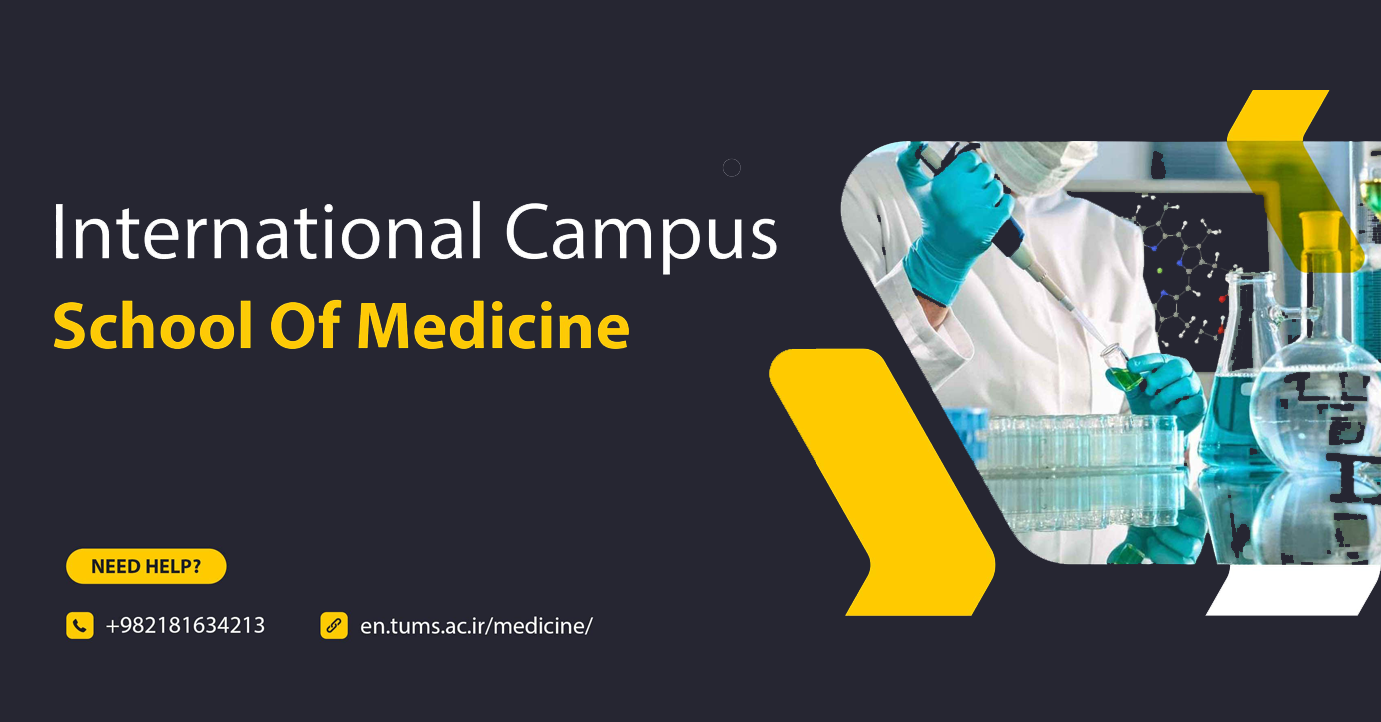
Admission of international students to Tehran University of Medical Sciences (International Vice-Chancellor) commenced in 2011, and fortunately, their numbers have increased annually, students are currently pursuing studies in various fields, and most of them are studying Medicine.
It's heartening to note that students from diverse countries and cultures coexist harmoniously with Iranian peers, fostering an interactive and friendly learning environment within the Faculty.
Here is the International Campus website: https://en.tums.ac.ir/en/content/1021/education

During the first five semesters (Basic Science Phase), MD & MBBS Students study in English in separate classrooms, led by esteemed professors of international renown. Upon successful completion of the comprehensive basic science exam, they transition to the clinical phase,
which includes Pathophysiology (2 semesters), clerkship (24 months), and Internship (18 months). During this time, students participate in theoretical classes and rotations across different hospital wards renowned as the scientific hub of our nation.
They work alongside Iranian students, engaging in patient examinations and treatment under the guidance of eminent scientists, professors, surgeons, and specialists. Exposure to thousands of unique cases enhances their proficiency and expertise in medicine.
In the basic sciences phase, education and exams are conducted in English. During the Pathophysiology phase, instruction is given in Persian, with exams being optional. In the clerkship and Internship phases, both instruction and exams are conducted in Persian.
For examinations conducted in Persian (including Fundamentals and Clerkship exams), students are granted an additional 25% of the allocated examination time.
As students engage in hospital rotations as Stagers and Interns, they communicate with patients in their native language, underscoring the importance of learning Farsi. In the School of Medicine, students pursue two distinct levels of study: MD and MBBS.
*The primary difference between these levels is the Internship requirement, which is mandatory for MD students but not for MBBS students.
*To obtain an MBBS degree, students must successfully complete the final assessment exit exam and the professional qualification practical (OSCE) exam. take thesis is also mandatory.
Following the completion of the pathophysiology and clerkship phases, MD students undergo the comprehensive pre-internship exam. Successful candidates proceed to the Internship phase, spanning 18 consecutive months.
Education Affairs

here is the International Campus- School of Medicine website: https://en.tums.ac.ir/en
All news, announcements, census, reports, curricula, exam schedules, timetables, rules, regulations, research affairs, academic calendar, course guidelines, and other useful and practical information will be uploaded and updated on the faculty website. This site is the only reliable source of information. The faculty is not responsible for any information or data obtained from other sources.
Using the service desk (Mizekhedmat) software, you can register all your requests, which will be promptly followed up by the relevant experts.
https://mizekhedmat.tums.ac.ir/
Persian Language Course

Considering the importance of learning Persian for medical students due to the necessity of communicating with patients in hospital wards, clinics, and other clinical environments.
For more information about General Persian and Persian for Medical Purposes, you can visit these websites.
https://en.tums.ac.ir/intlcollege/en
https://en.tums.ac.ir/medicine/en/content/1214/persian-for-medical-purpose

BASIC SCIENCES PHASE

It is important to note that the language of instruction and assessment(exams) in the basic science stage is English. In the pathophysiology (pre-clinic) phase, instruction is conducted in Persian, while assessments for are administered in English. For clerkship and internship stage, both instruction and examination are conducted in Persian. Consequently, international students may choose either English or Persian as the language for the Comprehensive Basic Sciences and Pre-Internship examinations.
The Basic Science Phase is 82.16 Credits, which include Theoretical & Practical courses, Laboratory, and Block Systems and are offered to students in 5 semesters. For all Basic Science courses, the passing grade is set at 10, except for Family Health.
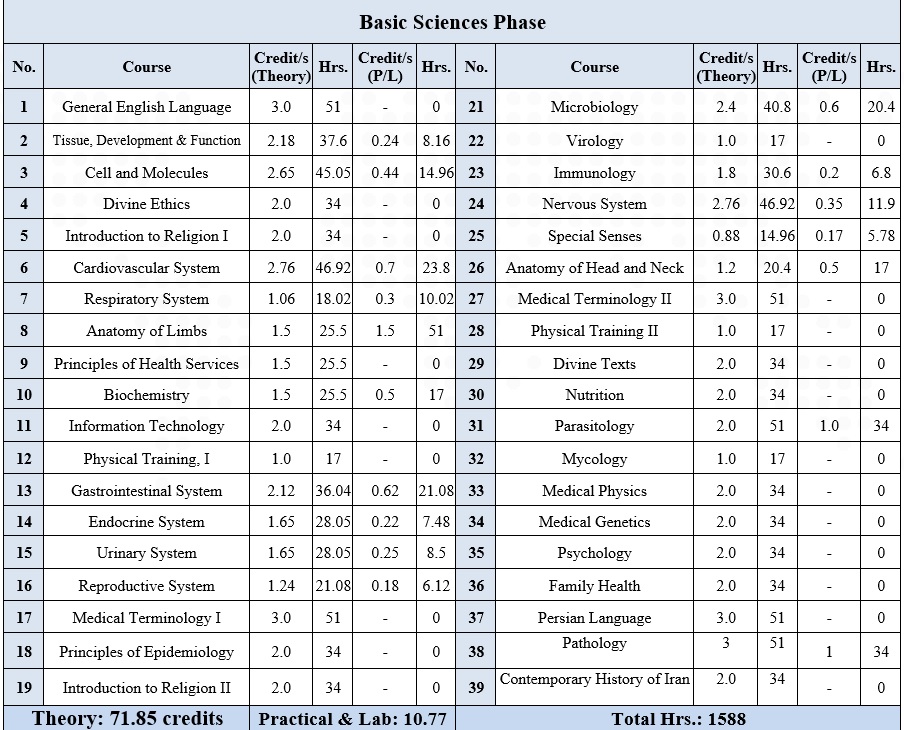

PATHOPHYSIOLOGY PHASE
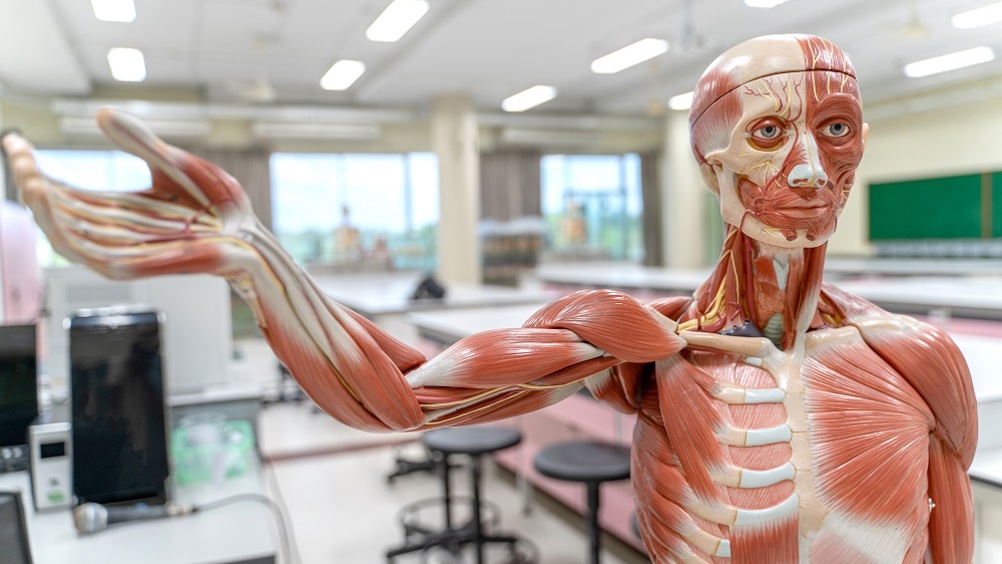
After successfully completing all courses and passing the Comprehensive Basic Sciences Exam, students progress to the Pathophysiology Phase, which spans two semesters. Each semester offers a predetermined set of courses, with no option to enroll in additional courses beyond the designated curriculum. The first semester comprises 14.4 credits, while the second semester consists of 21.2 credits, a total of 35.6 credits across both semesters.
This phase encompasses a total of 25 theoretical and practical courses. The theoretical component comprises 30.9 credits (525 hours), while the practical-laboratory component amounts to 4.7 credits (160 hours). It's important to note that students are restricted from enrolling in second-semester courses during the first semester.
For all pathophysiology courses, the passing grade is set at 12, except for pharmacology, immunology, and medical statistics.
Additionally, students are required to complete the Medical Rituals course, encompassing both theory and practice. However, the grade received in this course does not impact the Semester Grade Point Average (GPA) or the Total Grade Point Average (GPA) of students.
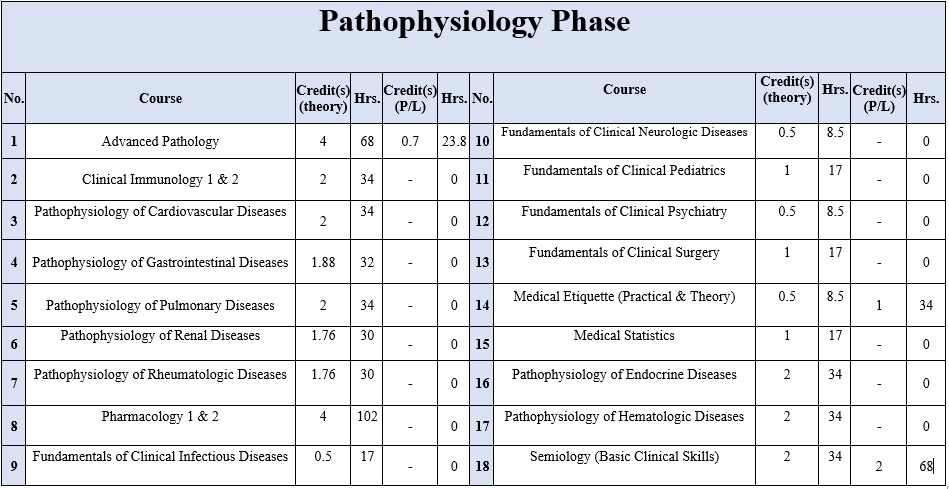

CLERKSHIP PHASE
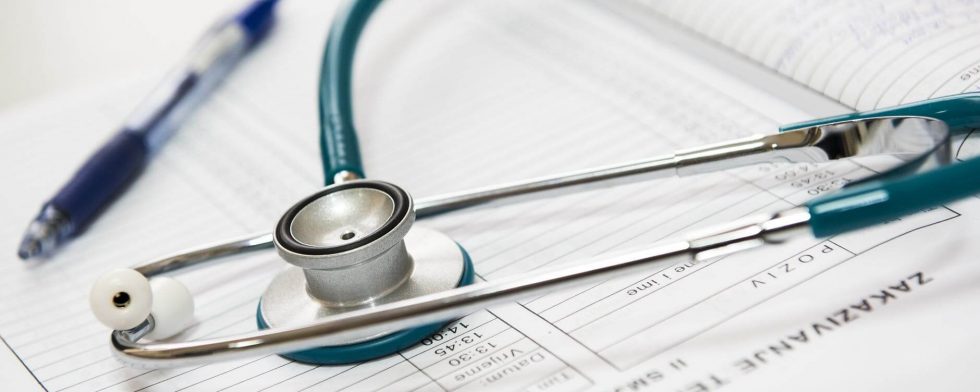
After passing the Pathophysiology Phase, students enter Clerkship and during 24 consecutive months (4 semesters), they pass all Hospital Wards and theoretical courses, which is a total of 96.5 Credits. Each month in Clerkship Ward is 3 Credits.
- This Phase includes 30 theoretical courses & Hospital Wards.
- Passing Persian Medicine is not mandatory for MBBS students.
- Obtaining a Thesis is mandatory for MBBS students.
Stagers General Responsibilities:
Adherence to religious, ethical, and medical principles at all times while in the hospital, and compliance with occupational and administrative regulations.
Wear a clean and tidy white coat.
Display identification card with specifications visible on the cover.
Maintain positive relationships with professors, patients, and department personnel.
Proper use of phones and medical equipment.
Refrain from using mobile phones in the department.
Attend the hospital according to the designated hours set by hospital officials.
Visit respective inpatients starting from 7:00 a.m.
Actively participate in patient visits led by assistants and professors.
Maintain regular presence in the department, clinic, emergency room, and operating room as per the department schedule.
Participate regularly and actively in all departmental training sessions, including theory classes, morning reports, Journal Club meetings, public conferences, and educational rounds.
Prepare detailed and comprehensive histories for hospitalized patients.
Conduct thorough studies of relevant patients based on references provided by department professors.
Deliver scientific presentations as per the department's schedule.
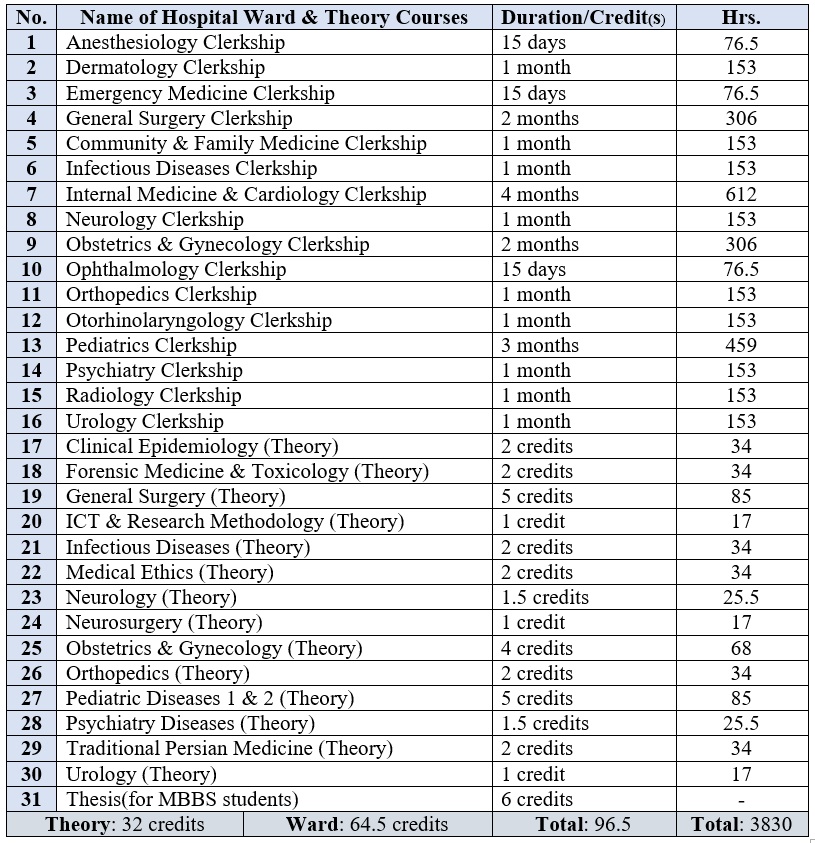

INTERNSHIP PHASE
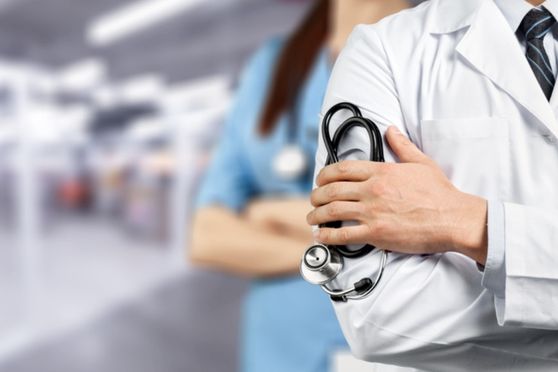
To start the Internship phase, students must meet the following requirements:
an overall grade point average of 14 in the clerkship phase, an overall grade point average of 12 in the basic sciences and pathophysiology phases, and successful completion of all courses & wards in the aforementioned phases.
After taking the Comprehensive Pre-Internship Exam, students complete all required internship wards within 18 consecutive months, earning a total of 68 credits. One month of Internship equates to 4 credits. This phase includes 15 hospital wards, four of which are elective.
The number of Internship credits does not include the thesis. Among the 13 elective sections, students select 4 based on their interests.
Registering the proposal and getting the code of ethics is mandatory to participate in the pre-internship exam.
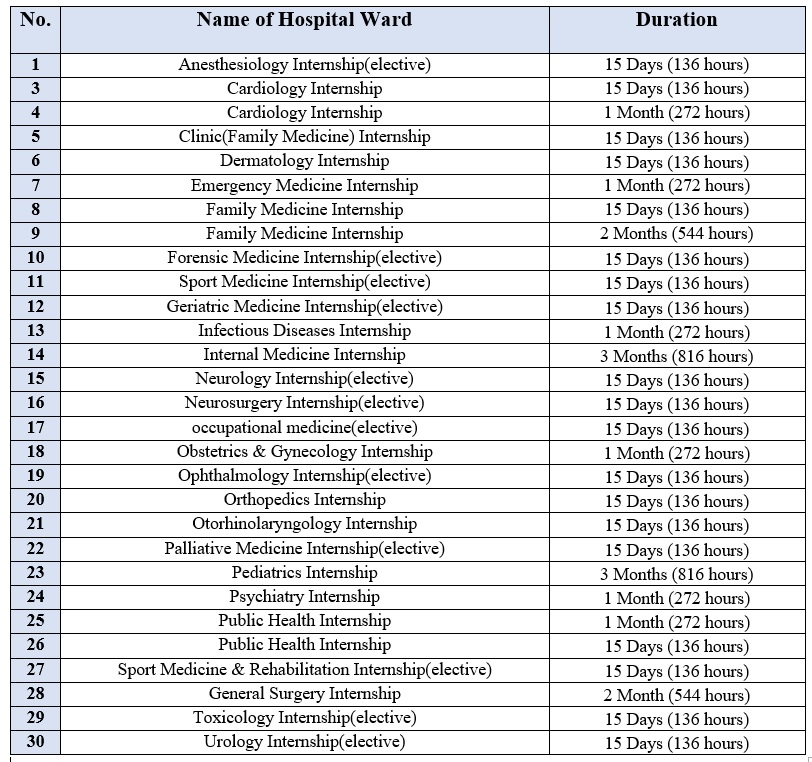
Interns General Responsibilities:
- Fully comply with hospital and surgical department regulations.
- Adhere to professional attire standards set for medical students.
- Uphold professional ethics in interactions with patients and colleagues from other departments, and fully implement the directives of senior professors and doctors.
- Attend weekly conferences and hospital reports on scheduled days as per the training unit's program.
- Present at conferences or introduce patients as scheduled by the education unit, under the supervision of professors.
- Accompany patients during transfers when necessary, as determined by the resident specialist or the supervising professor.
Responsibilities in Surgical Services:
- Ensure the regular distribution of surgical patients among interns and take responsibility for the hospitalized patients in the department.
- Obtain detailed patient histories, conduct examinations, and record findings in patient files.
- Participate fully in the diagnosis, treatment, and follow-up of patients.
- Conduct daily visits to hospitalized patients, write progress reports, and coordinate daily orders with the specialist in charge.
- Be present in the department by 7:00 am and ensure all patient orders are written and communicated to the nursing staff by 9:00 am.
- Perform patient-related procedures as outlined in the intern’s duties description.
- Follow up on the treatment of each patient, with one intern responsible each day until 2:00 pm for departmental duties and patient-related tasks.
- Acquire detailed information about departmental regulations and fully cooperate with the nursing service to ensure complete patient information and coordination of written orders.
- Complete all patient file documentation under the supervision of the attending physician.
- Handover patients needing follow-up to the on-call intern at the end of each shift.
Clinic Responsibilities:
- Arrive at the clinic before the supervising professor and take complete patient histories.
- Record detailed medical histories, examinations, and other relevant documents in the patient's clinic file.
- Participate fully in the diagnosis, treatment, and physical examination processes of clinic patients.
On-Call Responsibilities:
- On normal days, duty hours are from 2 hours after sunrise until 8:00 am the following day. On holidays, duty hours are from 8:00 am to 8:00 am the next day.
- Introduce yourself to the emergency room and resident specialist at the start of your shift and coordinate how to contact them for advice when needed.
- Be promptly present at the bedside of emergency patients or as needed in other departments, taking detailed histories and conducting examinations.
- In non-emergency situations, review the patient's condition with a specialist after completing the history and examination, and notify the resident. In critical emergencies, involve the resident specialist simultaneously while performing basic procedures, history taking, and examination.
- Fully participate in the diagnosis, treatment, and follow-up processes for patients.
Educational Hospitals
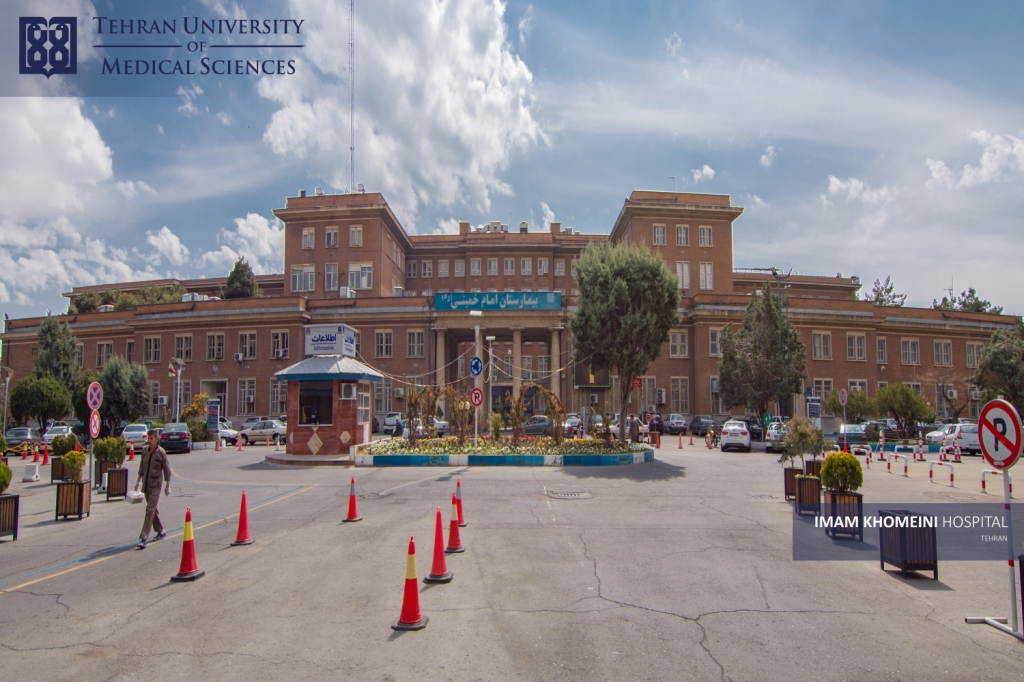
It should be noted that Clerkship and Internship Phase are held in these hospitals:
Sina Hospital, Razi Hospital, Farabi Hospital, Ziaeian Hospital, Shariati Hospital, Roozbeh Hospital, Baharloo Hospital,
Amir A’lam Hospital, Yas Women's Hospital, Arash Women’s Hospital, Bahrami Children’s Hospital, Tehran Heart Center Hospital,
Imam Khomeini Hospital Complex, Children’s Medical Center HospitalResearch Affairs

For information about the entire process of conducting thesis and research affairs, refer to the link below.
https://en.tums.ac.ir/medicine/en/content/722/guidelines
Student Affairs

In the student section, you will find a census of faculty activities, top rankings, and recognition certificates awarded to distinguished students by departments and professors.
For more information about student affairs, refer to the link below.
-

After completing all hospital wards and theoretical courses, obtaining passing scores, registering all scores in the system, defending the thesis, achieving an overall average of 12 in basic sciences and physiopathology phases, and achieving a Total CGPA of 14 in clerkship & Internship phases, you can start the graduation process. For more information, refer to the link below
https://en.tums.ac.ir/medicine/en/content/1211/graduation
Skill Lab
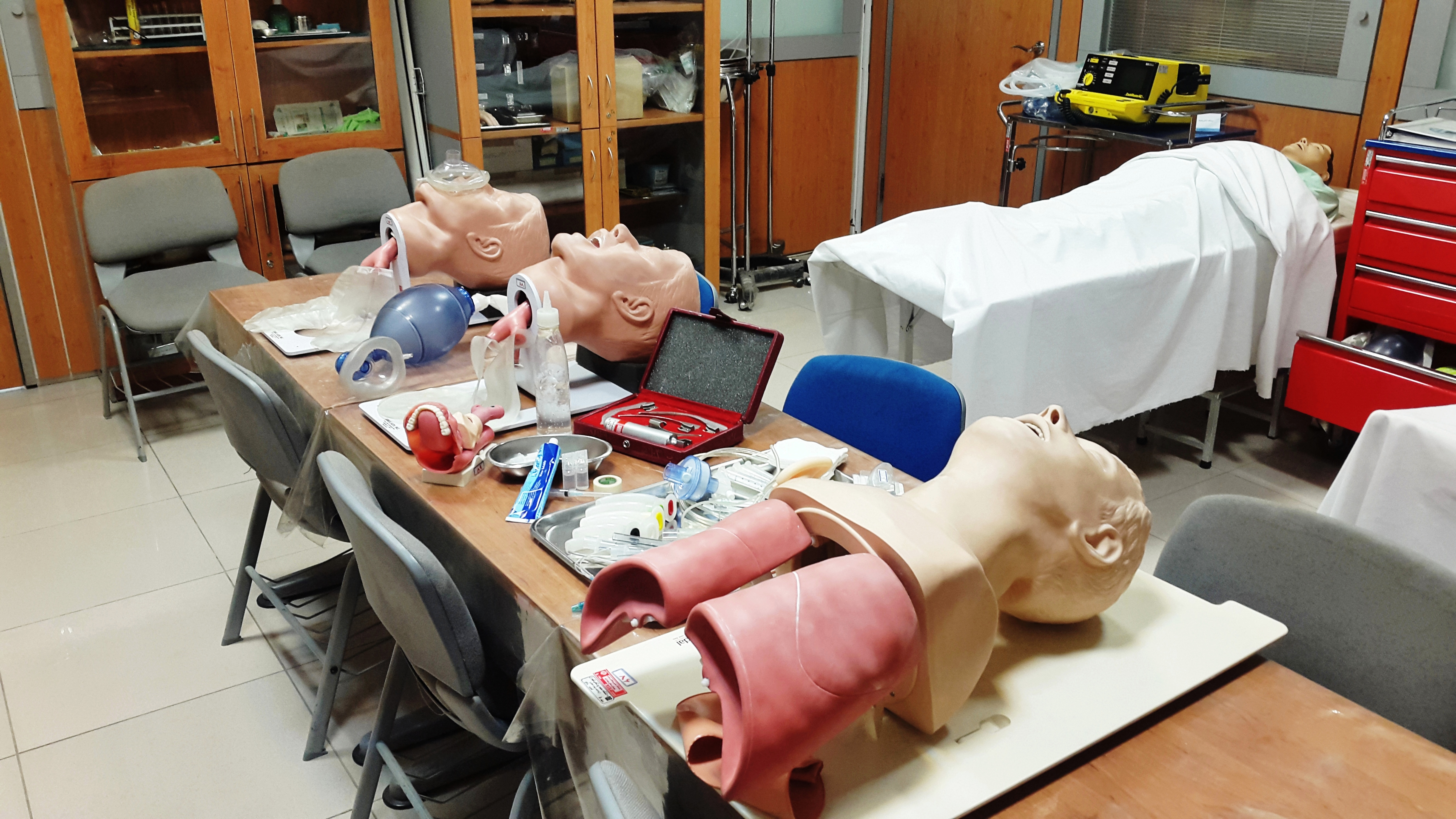
The SKILL LAB at the International Campus- School of Medicine was primarily established to conduct standard practical workshops for training General Medicine students at Baharloo Hospital. Many students have acquired clinical and practical medical skills in this department.
The educational department of this center includes one classroom and five team-working rooms.
The center is fully equipped with all necessary educational facilities, including manikins and medical equipment required for all phases of the General Medicine course.
All rooms are equipped with audio-visual and computerized features, allowing for workshops with capacities ranging from small to medium-sized groups. Many theoretical and OSCE exams have been successfully held at this center.
The center houses various types of manikins, such as advanced and introductory resuscitation manikins, as well as those for catheterization, NGT, ABG, LP, injections, obstetrics and gynecology, preliminary examinations, and orthopedic moulage.
For more information, refer to the link below:
